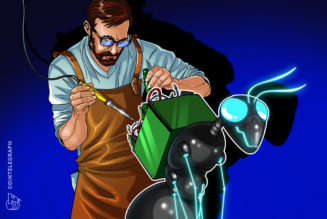Arts
‘My Body has Betrayed me Again’: Solo aims to defy stereotypic tropes of gay people
Friday January 12 2024

Joseph Obel starring in ‘My body betrays me again at the Femlab at The Mall, Westlands on December 20, 2023. PHOTO | POOL
My Body has Betrayed me Again was initially conceived as a short story by Ndegwa Nguru. It was then transformed into an audio-play interpreted by Jim Chuchu in a podcast that Joseph Obel heard and felt compelled to respond to.
“Joseph was so moved by what he heard in the podcast, he devised, produced, and directed the show we have just seen,” Obel’s co-producer Esther Kamba told the BD Life on the show’s opening night at the FEMLAB in Westlands.
Clearly, the solo performance was a deeply personal expression by Obel of the challenges both he and the author had faced, growing up in a world that still largely treats gay people as aliens and outcasts even when they are making immense contributions in their respective fields, especially in the performing arts.
Obel’s production aims to defy those stereotypic tropes of gay people as being bestial and alien, outsiders who should never be let into society, leave alone lauded for their public contributions. Nonetheless, he starts his performance with sound that suggested it might be coming from alien territory since it has an extra-terrestrial aura to it.
The alien echoes, generated by sound master Emmaus Kimani give way to sounds of the Nairobi streets. Matatu touts or manambas call out for customers. But then, they have a special style of mockery for an effeminate fellow like Obel’s androgenous man.
By now, the mocked one has suffered years of cruelty from classmates who, early on, could see that his body was already ‘betraying’ him.
He walked like a girl and moved like a model. And it would seem he had ‘queer DNA’, meaning it wasn’t just a fad imported from the West that he was emulating.
It was an implicit quality received from birth and unlikely to be ‘cast out’ or exorcised by religious means, however much one might believe otherwise.
In any case, Obel spent much of his performance strutting on high heels and swinging his hips in a fashion nearly as stylish as the elegant strut of a Naomi Campbell.
As it turns out, in real life, Obel is a fashion model as well as a thespian. But where he did fall short was in his choreography. That is to say he had set up so many open-ended situations where his body movement could have dramatised so much more story if he had worked with a choreographer.
The other area of contention is costuming. Obel was sharing stories about how gays were victimised. Yet to his credit, his actions mostly reflected the resistance to and defiance of the oppressive and undermining encounters that came his way.
Freedom of expression is the ethic that comes through in My Body. It also underlies the totality of his performance. And it’s the costuming that confirms that commitment. Yet I really wondered if just a simple black drape was sufficient to enable him to express himself fully?
Those who saw the contours of his long and lanky body will most likely agree that we saw his embodiment of freedom in the near nudity that he gave us in the last few minutes of the play. He moved with so much vigor in his dance that his black drape went flying. One assumes it was meant to do so.
But either way, one wasn’t shocked by the no-drape effect, only suggesting that the next time he performs the show, he pays more attention to costuming. The drape covered up the beads, bangles, and totem-like necklaces that covered the guy until the drape flew off. After that, those totems served as his attire.
Speaking to Esther Kamba after the show, she implied that some of what we watched may have been improvised and unanticipated. But if that is true, Obel didn’t have a problem strutting without shame since his body is well-toned, shapely, and well-suited for a career in modeling as well as on stage. His was a brave endeavor and we applaud him for that.
The ending of the show felt anti-climactic, unfinished and unresolved. “Joseph wanted it to end that way,” says Esther.
But if his defiance has ultimately turned into outrage at the lack of tolerance, kindness, and love of the haters he knows, Obel feels that by ending with him banging on floors and tables, he’s implicitly affirming the idea, ‘A luta continua,’ the struggle continues. And so will he.









